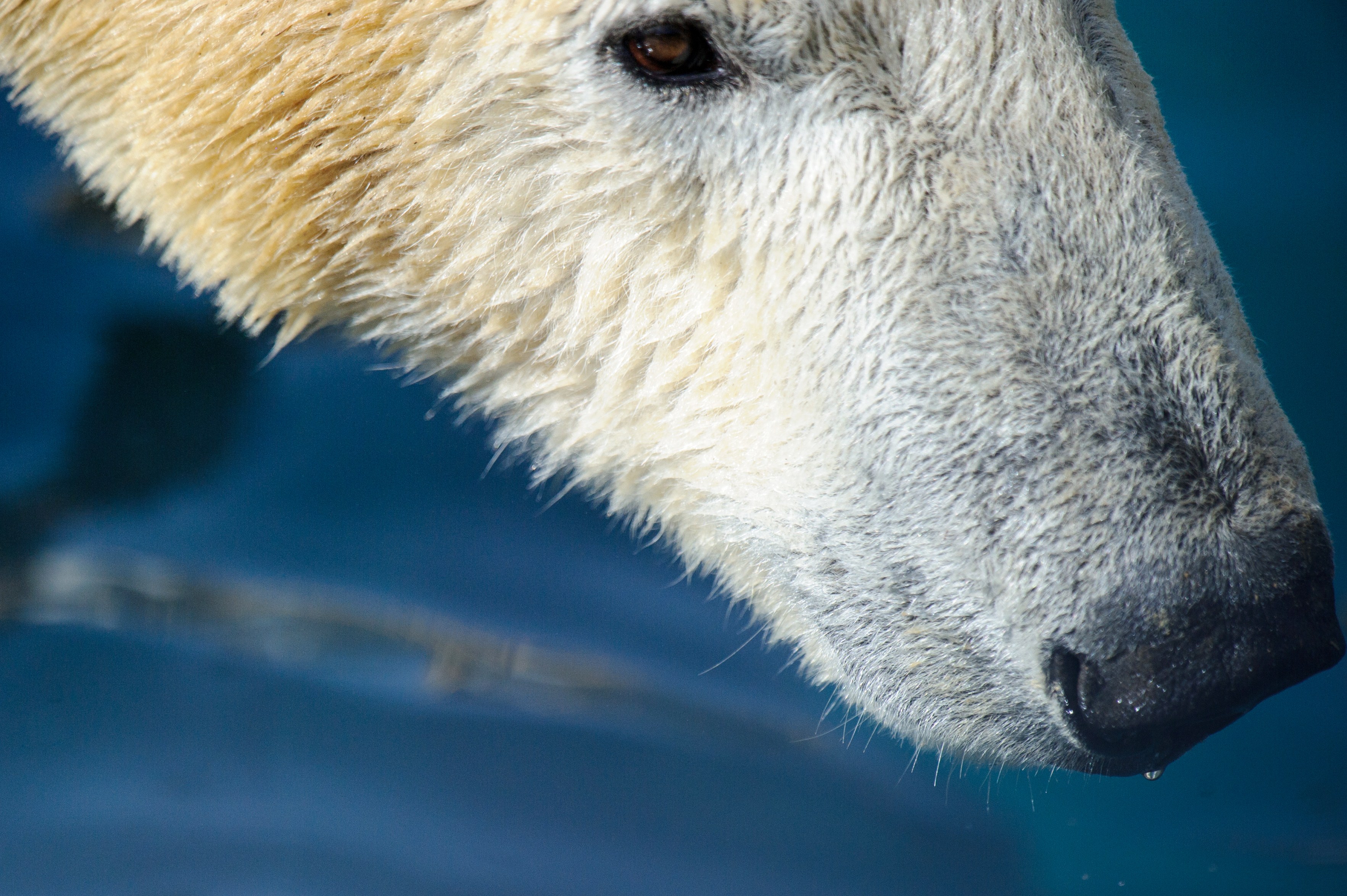Polar bears sniff pawprints to find clues about potential mates: study

Polar bears looking for mates appear to be following their noses over the sea ice, according to a newly published study.
Like brown and black bears, polar bears make a practice of sniffing scents left behind by other members of their species. But unlike brown and black bears, which leave their odors on trees or other vertical surfaces, polar bears have to rely on paw prints left on the horizontal surface of snow-covered ice.
They appear to be using these scents to decipher messages about the other polar bears that are nearby, according to the study by scientists from the San Diego Zoo’s Institute for Conservation Research, Polar Bears International and the U.S. Geological Survey. The study was published online in the Nov. 3 issue of the Journal of Zoology.
Chukchi and Beaufort bears studied
The study used smell swabs collected from the feet of tranquilized Chukchi and Beaufort bears sampled between 2004 and 2009. The Arctic field work on the wild bears was done by the U.S. Geological Survey and the U.S. Fish and Wildlife Service. In all, the agencies took samples from about 200 Beaufort bears and about 100 Chukchi bears.
The preserved odors from the bears’ feet were strong and “generally unpleasant,” said the lead author, Megan Owen of the Institute for Conservation Research at San Diego Zoo Global.
“We don’t know the ultimate source of the scent, but it is possible that it is an accumulation of urine or body odor, a collection of apocrine gland secretions (sweat) or a combination of both,” she said in an email.
The paws’ smelly secretions, preserved and stored in deep-freeze, were spread on cardboard — considered a neutral surface — and placed in boxes that were presented at different times of the year to 26 polar bears in 10 zoos in locations ranging as far south as Memphis and San Diego and as far north as Toronto and Quebec.
Once they presented the boxes, the scientists watched the zoo bears’ reactions.
Interpreting pawprint odours
They measured the number of approaches, the amount of time spent sniffing to investigate and a physical behavior called the “flehmen” response, in which mammals curl their lips, raise their heads and inhale through their mouths — a sign of keen interest.
Though the people conducting the experiments couldn’t distinguish between paw scents, the zoo bears could, the study findings suggest.
The scientists found that the zoo bears were most likely to investigate the scents of opposite-sex wild bears in the spring — the polar bear mating season. The male zoo bears seemed to be able to identify which smell was left by female bears in estrus.
The findings raise some concerns, said the authors.
If the sea ice is serving as polar bears’ smell-message board, that could spell trouble for the animals, Steven Amstrup, chief scientist for Polar Bears International and a co-author of the scent study, said in an email.
“The spring sea ice is far less extensive and more fragmented than it was historically. I saw its character change dramatically during the 30 years I did polar bear research in Alaska,” said Amstrup, who spent several years studying polar bears for the USGS’s Alaska Science Center. “Such fragmentation can only worsen as the world warms, and any scent trails left on the ice will become more fragmented. I cannot hypothesize how increasing fragmentation could make trails anything but more difficult to follow.”
Related stories from around the North:
Canada: Star of acclaimed Inuit-language film shoots polar bear in self-defence, CBC News
Norway: Arctic Norway needs polar bear spotter, The Associated Press
Russia: Putin ensures Arctic militarization will not harm polar bears, Barents Observer
Sweden: Wild boar attack in suburb of Stockholm, Sweden, Radio Sweden
United States: Tense moment for Alaska polar bear patrol, Alaska Dispatch



